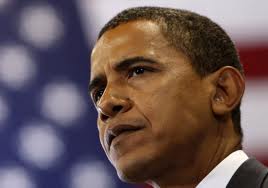
Washington, May 22: In a rebuff to Pakistan president Asif Ali Zardari, US president Barack Obama did not meet him on the margins of the NATO Summit in Chicago as the two countries failed to strike a deal on reopening the NATO supply lines to Afghanistan.
Zardari, who flew to Chicago with hopes of lifting his stature with a meeting with Obama, was preparing to leave empty-handed as the two countries continued to feel the repercussions of a NATO air strike last November that killed 24 Pakistani soldiers, an incident for which the US President has offered condolences but no apology.
As the two-day NATO summit opened in Chicago last evening, Obama remained at loggerheads with Zardari, refusing even to meet him without a deal on the supply routes, which officials in both sides acknowledged would not be coming soon, US media reported on Monday.
But White House deputy national security advisor Ben Rhodes said that Obama could not meet Zardari as he had a "full slate of summit meetings to attend."
"The two bilateral meetings, really, that he did, or President (Hamid) Karzai for obvious reasons given the focus on Afghanistan here, and the Secretary General of NATO given that it's traditional for the host to make sure that we're aligned with the secretary general heading into the summit.
"But we don't anticipate any other bilateral meetings so we didn't draw that linkage. We're going to continue to work through the issue with the Pakistanis," he said.
However, a deal to reopen the supply lines fell apart as Obama began talks on ending the NATO alliance's combat role in Afghanistan in 2013, The New York Times said. The failure to strike a deal ahead of the summit injects new tension into the relationship, it said.






Comments
Add new comment